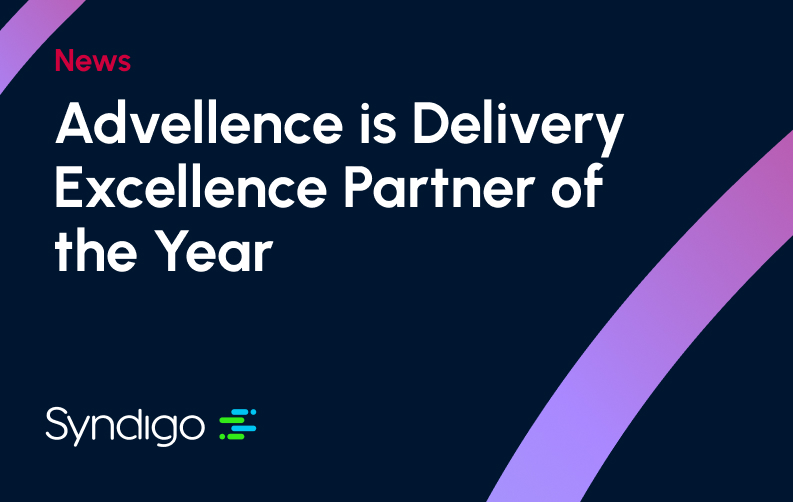July 17, 2024
Data Governance
In the midst of global, highly competitive and extremely dynamic markets, more and more companies recognize the value and critical role of data for business success. However, a look at practice shows that many leave the potential in their database unused.

Data governance or: How you can optimize your data management and get the full potential out of your data inventory
In the midst of global, highly competitive and extremely dynamic markets, more and more companies recognize the value and critical role of data for business success. However, a look at practice shows that many leave the potential in their database unused. There is often a lack of structures for efficient data management and the organization-wide and strategic use and utilization of data and information. In this blog article, we will therefore show you how you can sustainably optimize your data management by implementing a data governance framework – and how you can maximize the added value from your data inventory with the help of an MDM system.
Data governance – for efficient data management
Although the term data governance is not uniformly defined, it basically refers to a type of strategic framework for data management. The main goal of a data governance framework is to establish an orderly and meaningful use of data within the organization. At this point, the word “useful” means that the database is managed within the company in a way that gives all stakeholders immediate access to the data and information relevant to them. In this context, however, “useful” also means that the chosen administrative practice allows the individual data domains to be consolidated and supports cross-departmental collaborations and insights.
How to: Data Governance
Like any project, a data governance initiative first requires a clear objective. Ideally, this is derived from the overall corporate strategy. Questions such as “What is the most important company data and what data quality are we striving for? “should be at the center of this and taken into account when developing the framework.
Guidelines: For efficient data management, clear rules and standards for handling data, more specifically for storage and maintenance processes, must be defined, including topics such as taxonomies and metadata. The aim must be to standardize administrative work as well as possible across the organization. The Directives should therefore also be made available in the form of a central reference work.
Responsibilities: In order to implement data governance guidelines, clear roles and responsibilities must be defined and assigned at both organizational and procedural levels. Responsibilities include monitoring compliance with rules and standards, as well as regularly testing the implemented structures and, if necessary, adapting them to new data management requirements.
Tainings: The implementation of data governance structures should always be accompanied by training. Both long-term and new employees need onboarding that instructs them how to handle data in the desired way. Recurring training is also important in order to be able to build an organization-wide data culture and to continuously develop and strengthen the data literacy of employees.
The above points make it clear that a data governance framework cannot be developed and implemented overnight. Rather, data governance is to be understood as a continuous process that requires comprehensive change management in all areas of business. Data governance initiatives are truly successful when companies involve their employees from the start and the organization creates an awareness of data as a strategic asset and the need for shared data practices. At the same time, companies must ensure that their employees have the necessary skills and tools to implement the guidelines efficiently. In view of the rapid increase in data, it is therefore also advisable to invest in appropriate digitization projects at an early stage. While software solutions for dedicated data domains and use cases are required on the one hand, secure data quality along the information supply chain also requires a solution for comprehensive data management. So-called MDM systems can help here.
MDM – for a golden record of master data
The acronym MDM stands for Master Data Management and describes the software discipline for managing and maintaining master data. The ultimate goal of an MDM system is to establish a single source of truth for all master data domains in the company and to provide golden records, i.e. meaningful master data records for individual operating objects such as customers, products or locations. Company-specific guidelines can be integrated into the MDM system as validation rules for importing, creating and exporting data. In this way, the system is able to support the implementation of data governance initiatives and set the course for data quality in all subsequent processes. However, MDM systems also have another major advantage: By combining master data domains and golden records in a central repository, relationships between individual objects can also be mapped and patterns identified. For example, companies can analyse the buying behavior of their customers more precisely and use the findings gained as part of product development or communication. An MDM system, which also enables the integration of unstructured data, for example from social media channels or customer service, finally offers companies a completely new level of 360° customer view.
Management Summary
As a strategic starting point for data management, data governance is fundamentally important for every company that handles data to ensure smooth business processes and processes. However, great retail success requires more than that: New technologies such as machine learning and tools such as BI and data analytics make it possible to evaluate your own database and react accordingly quickly and effectively to trends and market changes. However, the successful use of such technologies requires a consolidated and high-quality analytical basis. With an MDM system, you can ensure such a data base in your company – and always be one step ahead of the competition with data-based product and marketing strategies.
Strategic Advisory & Effective Execution
We continuously innovate to transform data into competitive advantage via expert advisory, effective project execution, and precision engineering.
Our Blog for Experts.
We use our expertise in various disciplines to turn data into sustainable competitive advantages for our customers and to share our knowledge.
Further News
All the latest news about Advellence







